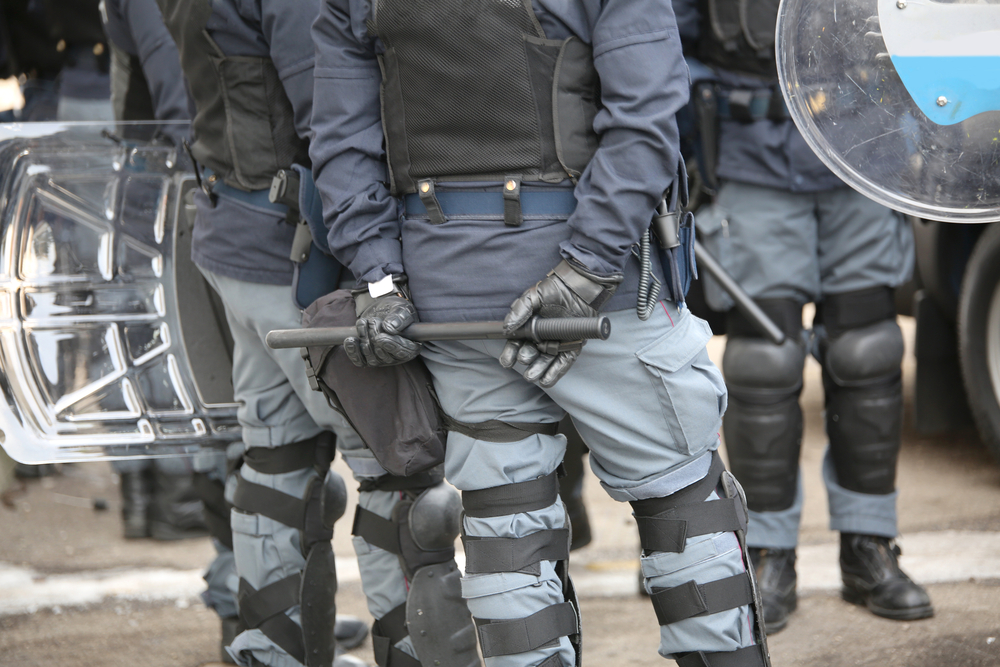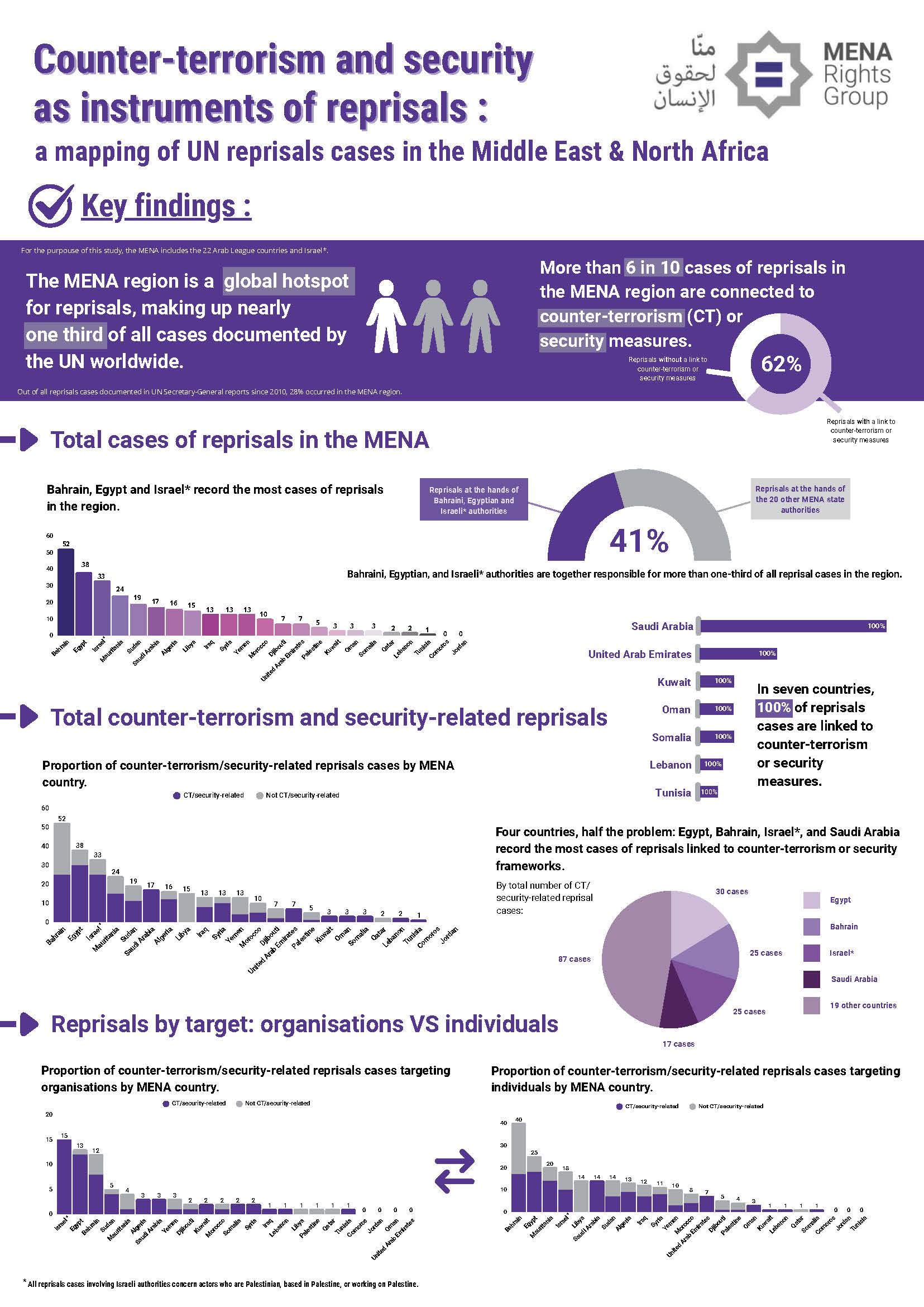September 25, 2025

Police in riot gear during the anti-terrorism control in the city. © Image used under license from Shutterstock.com.
A comprehensive 15-year analysis of UN-documented reprisals cases reveals that more than 60% of all intimidation and retaliation against individuals and organisations cooperating with UN human rights mechanisms in the Middle East and North Africa (MENA) region involve the abuse of security and counter-terrorism frameworks.
The report, submitted to UN Secretary-General (UNSG), examines 296 cases from 2010 to 2024 documented in the UNSG’s annual reports on reprisals, across 22 Arab League states and Israel. The findings expose a troubling pattern of states weaponising security and counter-terrorism laws and measures to silence human rights defenders, journalists, and civil society organisations who engage with UN mechanisms.
“Our findings confirm what we have long documented on the ground – accusations of “terrorism” or “threats to security” have become repressive governments’ tool of choice to punish those who dare speak to the UN about human rights violations,” said Tanya Boulakovski, author of the report. “Every act of reprisal has a chilling effect: it not only harms those targeted but perpetuates a climate of fear and self-censorship, weakening the entire UN human rights system.”
The report categorises the 183 security-related reprisals cases into two types: direct and indirect links. Direct links (over 70% of cases) mean the reprisal itself was carried out using security measures – for example, the person was charged with terrorism offenses, prosecuted before an exceptional court, or detained by state security forces specifically because they cooperated with the UN. Indirect links refer to cases where individuals or organisations experienced both reprisals for UN cooperation and security-related targeting, but the reprisal was not directly carried out through those security measures.
The MENA countries where the most cases of reprisals were reported are Bahrain (52), Egypt (38), Israel (33),* Mauritania (24) and Sudan (19). Most alarming is the complete correlation between reprisals and security measures in Saudi Arabia, the United Arab Emirates, Kuwait, Oman, Somalia, Lebanon, and Tunisia: in the seven countries, 100% of documented reprisals cases involved counter-terrorism or security elements.
Egypt accounts for 30 counter-terrorism-related reprisals cases – the highest number in the region. Of these, 28 cases showed a direct link between the reprisal act itself and counter-terrorism measures, demonstrating the systematic deployment of security legislation to punish those cooperating with the UN.
The analysis also reveals that organisations face disproportionate targeting, including dissolution, asset freezes, security-related classifications and terrorism designations for engaging with UN mechanisms. Israel stands out for having targeted the highest number of organisations – 15 in total – all linked to abusive security or terrorism-related accusations.
The findings come as the UNSG 2025 annual report on reprisals was presented yesterday before the UN Human Rights Council (HRC). MENA Rights Group calls on the HRC to establish a dedicated mechanism to monitor and respond to the abuse of security and counter-terrorism frameworks in reprisals cases, and urges governments in the MENA to immediately cease all acts of reprisals and intimidation against those engaging with the UN.
* All reported cases of reprisals committed by Israeli authorities involved Palestinian individuals or organisations, or reprisals linked to human rights work related to Palestine.







